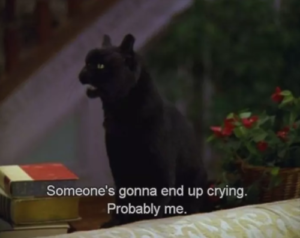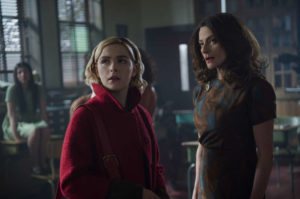CAT RAMBO: One aspect of the great appeal of the Hap and Leonard books is their enduring friendship, including its ups, downs, and petty annoyances like one of them eating all the animal crackers every once in a while. Presumably you didn’t set out to write one of the great friendships of literature, but how do you think it developed? What do you think you learned about friendship from writing theirs?
JOE R. LANSDALE: I never set out to write a series, let alone one that has endured as well as this one. They have become beloved by their fans. I added in all the better aspects of friends I have and have had, but unlike the friendship between these guys, not all of mine have endured, and some that did, well, those friends have passed. There’s also wishful thinking involved. The kind of friendship you would like to have. I learned a lot from their friendship, as it made me explore myself to find their similarities and their differences. My brother Andrew Vachss and I were very close, and he had a lot of Leonard’s aspects, but the overall personality of Leonard is, like Hap, a combined one. Hap, however, is very much like me, if not exactly like me. I learned to try and be a better person through their exploration, which is not to say I started out a bad one. In fact, in many ways I’m better than both of them. I haven’t killed anyone and have no plans to do so. You could call that, for them, a flaw.
In the introduction to the book, you talk about Hap and Leonard existing in a special kind of time since you’ve been writing them so long, aging at a different rate than you or I. Has that ever created problems for you with writing, moments when you regret establishing a particular fact because it conflicts with something you want to do?
Yes, sometimes it does, and sometimes I contradict something because I don’t reread the books. I might check a thing here and there, but once finished, I move on.
You have written so widely across genres and forms – comics, fiction, screenplays – that Nightmare Magazine described you as having become your own genre. What do you makes something enough of a Joe R. Lansdale story that you want to write it?
I’m excited about it. Sometimes that means it will turn out great, and sometimes I feel it will, and it doesn’t come out as great as I hoped. I always do my best, however, so I never feel like I threw one over the fence. One thing nice about Hap and Leonard is I’ve explored different kinds of crime and adventure stories with them. I like writing a variety of things, but Hap and Leonard come as close to it gets to me considering writing nothing else. I love those guys.
You’ve also talked about the novella being your favorite form to write in. Is it because of the wideness of possible word count there, or are there other considerations? People have told me we’re in the middle of a renaissance for novellas – do you think that’s true?
I think it just might be. I’ve written them for a long time, and in fact, some of my novels might be called novellas if anyone wanted to quibble. I think novel or novella is more about how something is published. If it’s between hard covers it tends to be considered a novel, or soft covers. If it’s part of a collection, it’s considered a novella. That’s not a dyed in the wool fact, just a common consideration.
You began your writing career with nonfiction, farm articles to be precise. Has anything from that time ever snuck into a story?
Frequently, as in Mucho Mojo, though I got some of my rose farming facts confused. My old boss was quick to point that out. But it’s in several books and stories.
When you want to read short stories, what authors do you go to? Is there anyone you’d suggest people search out?
I reread a lot of older fiction. I read new stuff all the time, but it takes time for me to feel the need to reread, and then I get on a kick. I like writers that have impacted me, like Ray Bradbury, Raymond Chandler, James Cain, Ernest Hemingway, Fitzgerald, John Steinbeck. Flannery O’Connor, Carson McCullers, Mark Twain, Henry Kuttner, Cyril Kornbluth, Robert Bloch, Richard Matheson, Charles Beaumont, Jack Finney, and this list could go on.
Among your comic work is one of my favorites, Jonah Hex. Any plans to do more writing with him? Are there any comic book figures that you’d love to write but have never gotten the chance to?
Well, I haven’t been asked since Tim Truman and I did our three series run. I love comics, but I’ve satisfied a lot of my itch there, but now and again I get a bit of comic hives and I want to scratch. I would and probably will do more comic work. I no longer have any characters I’m dying to do, as I’ve done many, but who knows. A Batman comic would be fun. I’ve only written about him in animation and in a couple of stories, a novel, and a children’s book, but no actual comics with him.
 BIO: Joe R. Lansdale is the internationally-bestselling author of over fifty novels, including the popular, long-running Hap and Leonard series. Many of his cult classics have been adapted for television and film, most famously the films Bubba Ho-Tep and Cold in July, and the Hap and Leonard series on Sundance TV and Netflix. Lansdale has written numerous screenplays and teleplays, including the iconic Batman the Animated Series. He has won an Edgar Award for The Bottoms, ten Stoker Awards, and has been designated a World Horror Grandmaster. Lansdale, like many of his characters, lives in East Texas.
BIO: Joe R. Lansdale is the internationally-bestselling author of over fifty novels, including the popular, long-running Hap and Leonard series. Many of his cult classics have been adapted for television and film, most famously the films Bubba Ho-Tep and Cold in July, and the Hap and Leonard series on Sundance TV and Netflix. Lansdale has written numerous screenplays and teleplays, including the iconic Batman the Animated Series. He has won an Edgar Award for The Bottoms, ten Stoker Awards, and has been designated a World Horror Grandmaster. Lansdale, like many of his characters, lives in East Texas.
If you’re an author or other fantasy and science fiction creative, and want to do a guest blog post, please check out the guest blog post guidelines. Or if you’re looking for community from other F&SF writers, sign up for the Rambo Academy for Wayward Writers Critclub!












